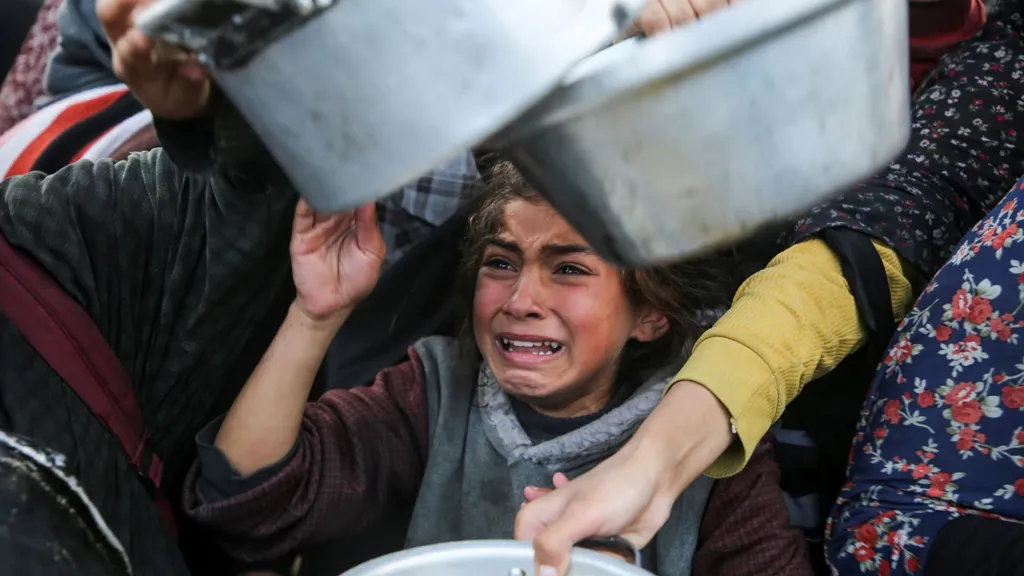Israeli Prime Minister Benjamin Netanyahu's office said Tuesday following the IPC's alert that the situation in Gaza was "difficult" but claimed Hamas had benefited from "attempting to fuel the perception of a humanitarian crisis."
Regardless, several health experts and advocates said children growing up in Gaza now would suffer from the health impacts of the hunger crisis for years to come.
"Their little bodies are shutting down," Lanning said.
There had been a "spike in the number of children and infants who are being admitted to the hospital for malnutrition," she said.
"What we can visibly see in Gaza is child wasting -- this is a situation of acute malnutrition that occurs when food is not available, and diseases are rampant," said Keats, whose research focuses on maternal and child undernutrition in humanitarian and development settings.
"It's absolutely critical that this famine is addressed now to reduce deaths from wasting," Keats said in an email. Still, she said, "It is likely that some of the long-term consequences are here to stay."
"Realistically, children are likely to also be stunted and have micronutrient deficiencies, and many probably have all 3 conditions," said Keats, who studies malnutrition, adding that this would further increase their "risk of adverse outcomes."
Wasting -- low weight for your height -- and stunting -- low height for your age -- are forms of undernutrition. Malnutrition also covers a range of excesses and imbalances in a person's intake of energy and nutrients, the WHO says on its website.
Beckie Ryan, response director in Gaza for CARE, a humanitarian agency working to address global hunger, warned of the long-term impacts on children, especially those under 5. For many, she said, "there is no way that they can recover from this."
Malnutrition in young children can have devastating effects on brain health and a child's ability to learn, the World Food Program warns on its website.
The first 1,000 days of life up to the age of 2 is considered a time of "unparalleled growth and development," it says.
"That's a particularly sensitive period where the long-term risks are also highest," Dr. Marko Kerac, a clinical associate professor at the London School of Hygiene & Tropical Medicine who studies malnutrition, said in a phone interview.
Kerac emphasized that while a lack of adequate nutrition can be particularly harmful for children under 5, older children, adolescents and even adults can still face long-term impacts from malnutrition -- and that there are "lots of factors that affect that long-term risk," including how swiftly patients can be treated.
Keats added that the impacts can be felt far into the future, with women who experienced wasting in childhood "more likely to give birth to low birthweight or growth-restricted infants" who are then at greater risk of poor health and mortality.
The priority, experts and officials agree, has to be an urgent intervention of adequate care and aid for Palestinians in Gaza.
But even then, Keats said, the reality of the hunger crisis "will be felt for generations."
CORRECTION (July 31, 2025, 12:08 p.m. ET): A previous version of this article incorrectly identified where the International Rescue Committee is based. It is the U.S., not the U.K.
